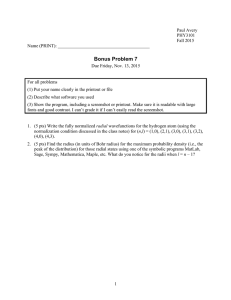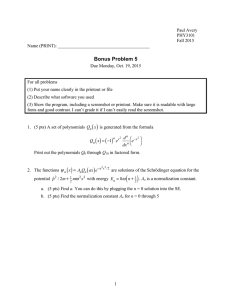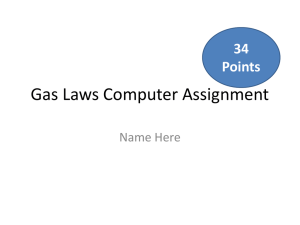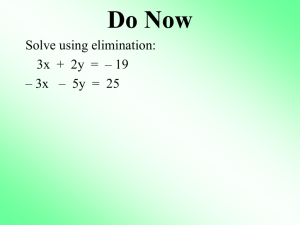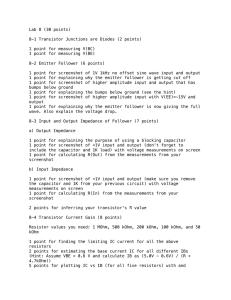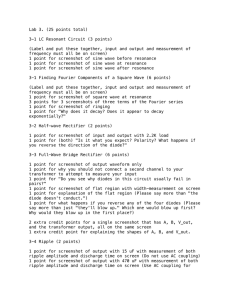Bonus Problem 3
advertisement
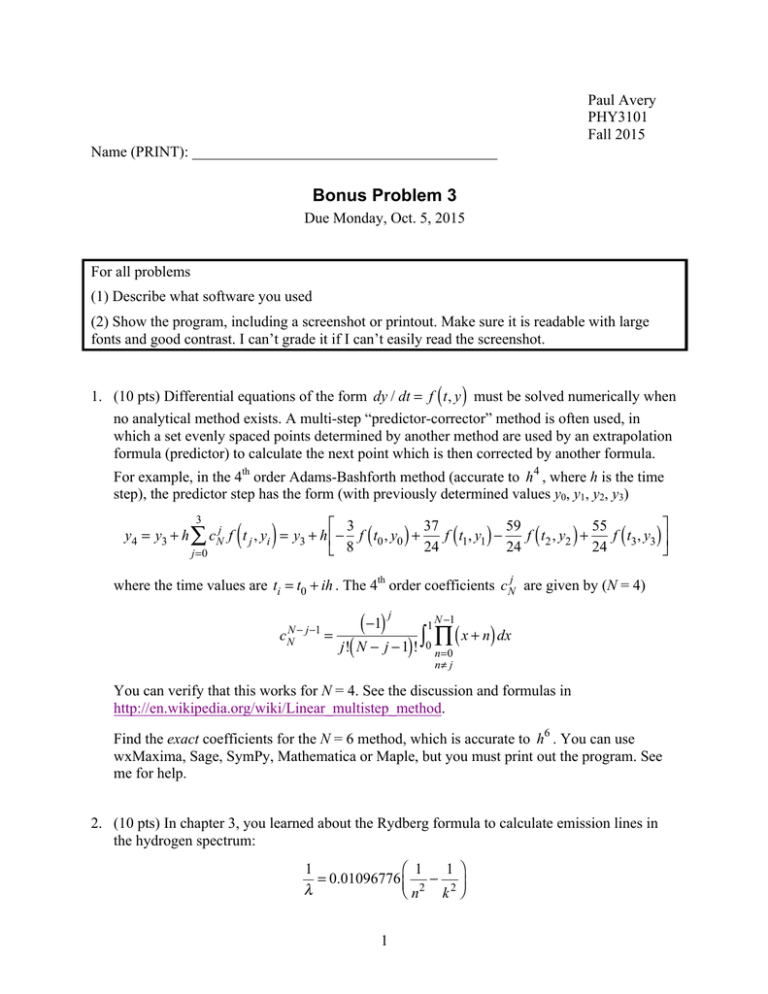
Paul Avery PHY3101 Fall 2015 Name (PRINT): Bonus Problem 3 Due Monday, Oct. 5, 2015 For all problems (1) Describe what software you used (2) Show the program, including a screenshot or printout. Make sure it is readable with large fonts and good contrast. I can’t grade it if I can’t easily read the screenshot. 1. (10 pts) Differential equations of the form dy / dt = f ( t, y ) must be solved numerically when no analytical method exists. A multi-step “predictor-corrector” method is often used, in which a set evenly spaced points determined by another method are used by an extrapolation formula (predictor) to calculate the next point which is then corrected by another formula. For example, in the 4th order Adams-Bashforth method (accurate to h4 , where h is the time step), the predictor step has the form (with previously determined values y0, y1, y2, y3) ( ) 3 ⎡ 3 ⎤ 37 59 55 y4 = y3 + h ∑ cNj f t j , yi = y3 + h ⎢ − f t0 , y0 + f t1, y1 − f t2 , y2 + f t3 , y3 ⎥ 24 24 24 ⎣ 8 ⎦ j=0 ( ) ( ) ( ) ( ) where the time values are ti = t0 + ih . The 4th order coefficients cNj are given by (N = 4) cNN − j−1 = ( −1) j 1 N −1 ∏ ( x + n) dx j!( N − j − 1)! ∫0 n=0 n≠ j You can verify that this works for N = 4. See the discussion and formulas in http://en.wikipedia.org/wiki/Linear_multistep_method. Find the exact coefficients for the N = 6 method, which is accurate to h6 . You can use wxMaxima, Sage, SymPy, Mathematica or Maple, but you must print out the program. See me for help. 2. (10 pts) In chapter 3, you learned about the Rydberg formula to calculate emission lines in the hydrogen spectrum: ⎛ 1 1 1⎞ = 0.01096776 ⎜ 2 − 2 ⎟ λ ⎝n k ⎠ 1 Calculate and print out the 10 longest wavelengths (in nm) for the series n = 1, n = 2, n = 3, n = 4, n = 5. Points will be based on how nicely you format your output. 2
